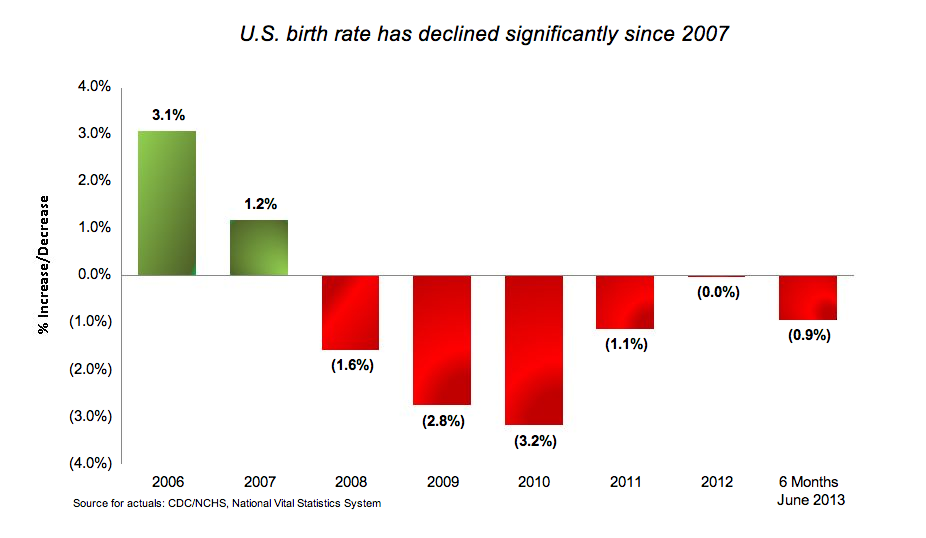For today's chart - take a look at the how the USA birth rate has been declining over the last several years, and after the chart, and for no additional costs, I will drop some comments about what, if anything, this might mean for you, the HR/Talent pro:

What might this mean, or at least suggest?
1. Your first reaction is that it means nothing. Who cares if there are relatively fewer kids being born right now? This won't impact labor markets for at least another 15 years or so and by then, who cares? A robot will be doing your job by then anyway, right?
2. But it is not just the sources of candidates/employees that matter or should matter to you. If your business has anything to do with selling products or services to the baby/youth/teen markets, then this trend is going to impact you. And if you think, 'We make industrial products that go into new home construction so this does not affect us', you might want to think again. The declining birth rate shouldn't be considered in a vacuum - their are related trends in marriage rates and ages of first marriage, household formation, and related spending at play here as well. Long story short, Americans are getting married less, are older when and if they do get married, are having fewer children, and are having them at more advanced ages than in the past.
3. This combination of a decline in birth rate and rise in the average age for both first marriages and having children will, if it has not already, influence your workforce planning processes in a few ways. You might be able to project a decrease or at least a reduction in the rate of increase in your benefits costs for covered dependents in the next few years, as your employees are covering fewer kids than in the past. Your succession planning processes may need to be re-emphasized if later career employees begin leaving (or simply taking leave) for child care reasons. These later career employees, say in their late 30s and up, are likely to have more senior and important roles in your company. Finally, if you are really and truly thinking long-term, say out 10-15 years, larger and wider demographic trends could effect things like expansion plans and ability of organization to move into new markets.
Perhaps I am stretching credibility by suggesting that you should really be worried about a probably caused by the 2007-2008 recession down trend in the birth rate when you have much more immediate and pressing concerns.
But I still find this kind of data fascinating, and even if you can't find an immediate or even medium-term impact of these bigger trends, I think they are worth recognizing. If nothing else you will at least know why the local school board wants to consolidate your elementary schools in the next few years.
Happy Thursday.